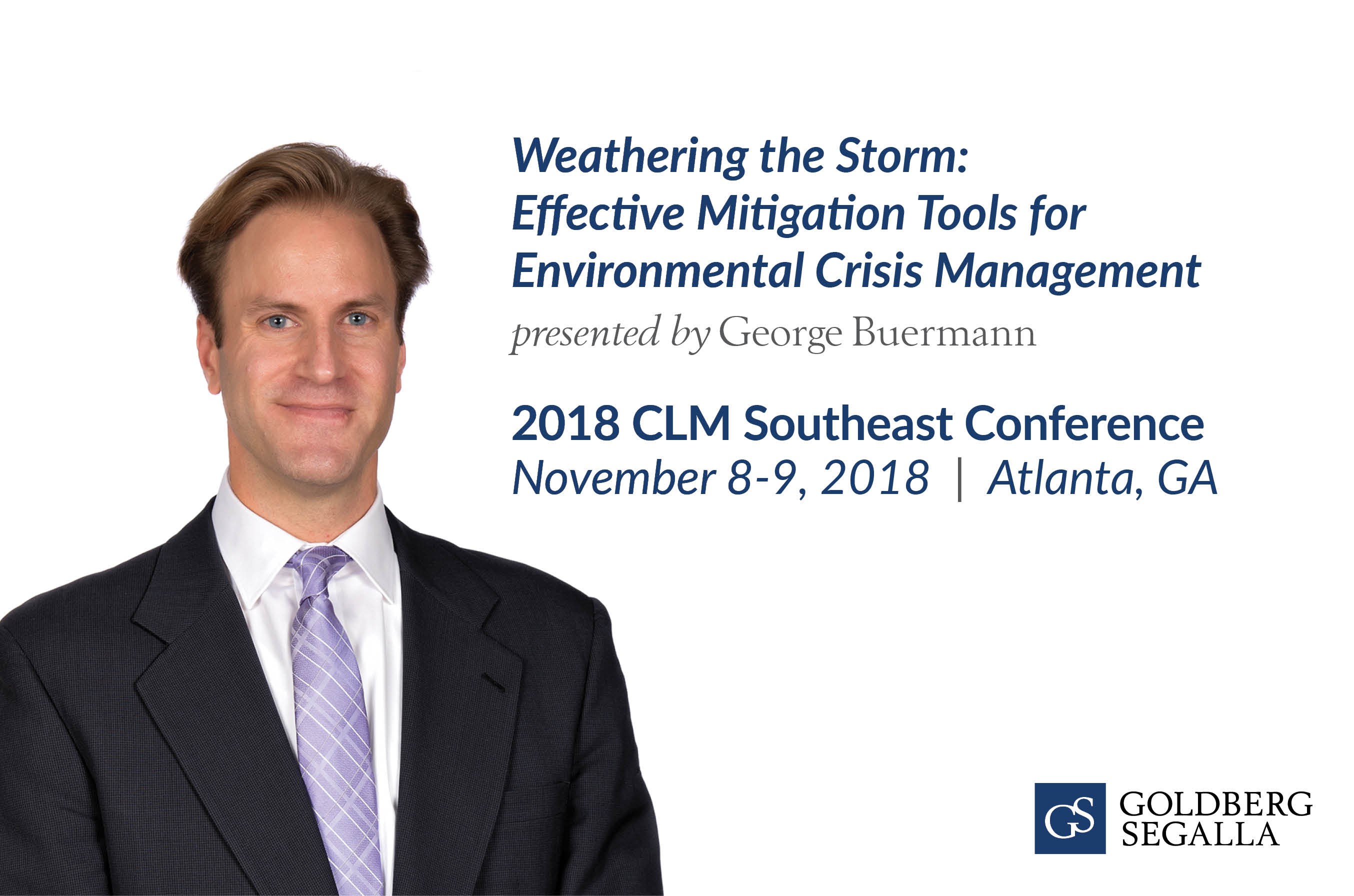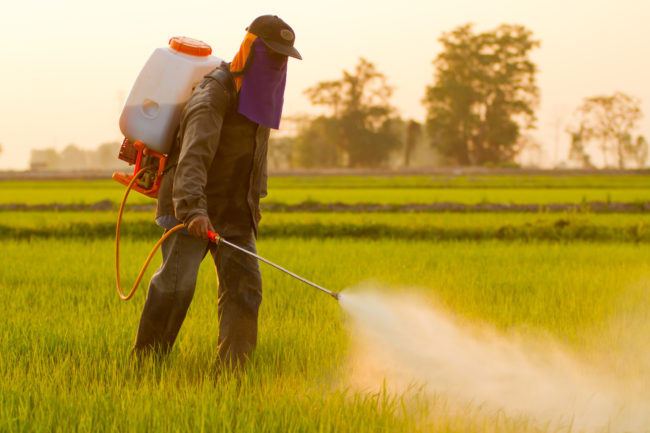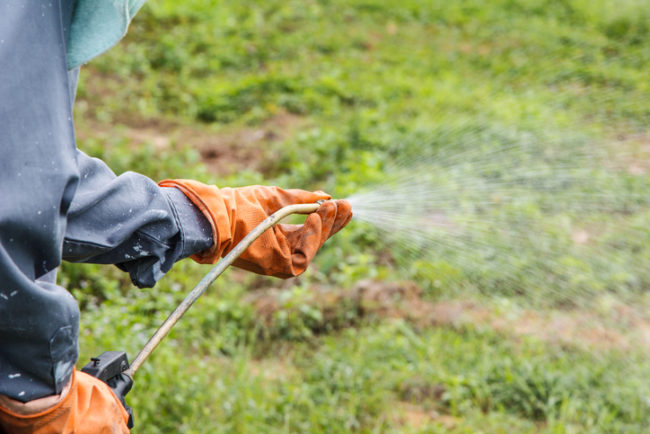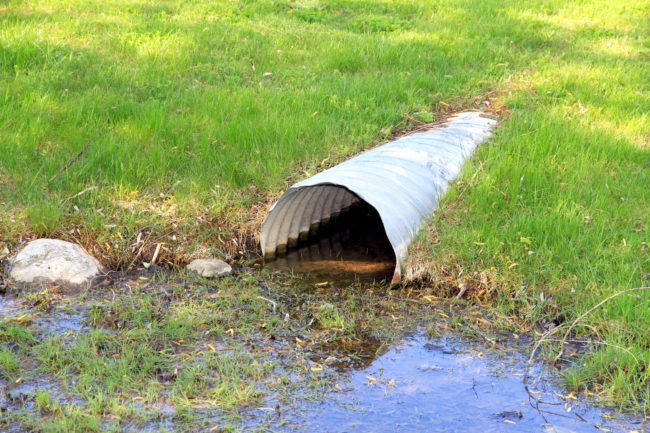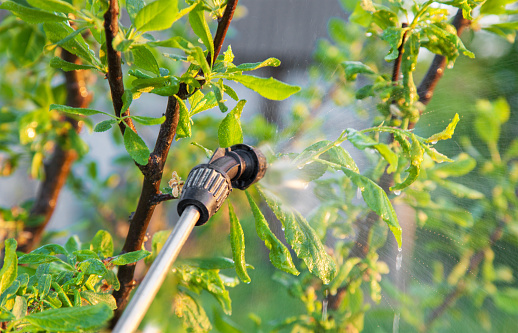Join Goldberg Segalla’s George Buermann on November 9 at the 2018 CLM Southeast Conference in Atlanta, GA. George will be part of a panel discussion titled, “Weathering the Storm: Effective Mitigation Tools for Environmental Crisis Management.” The panel will discuss the actions insurers and businesses can take to shift their posture from being reactive to a preplanning and preventative stance as well as ways to minimize and mitigate damages that arise from environmental disasters and emergencies. The panel will offer instruction on how to prepare …
Continue Reading